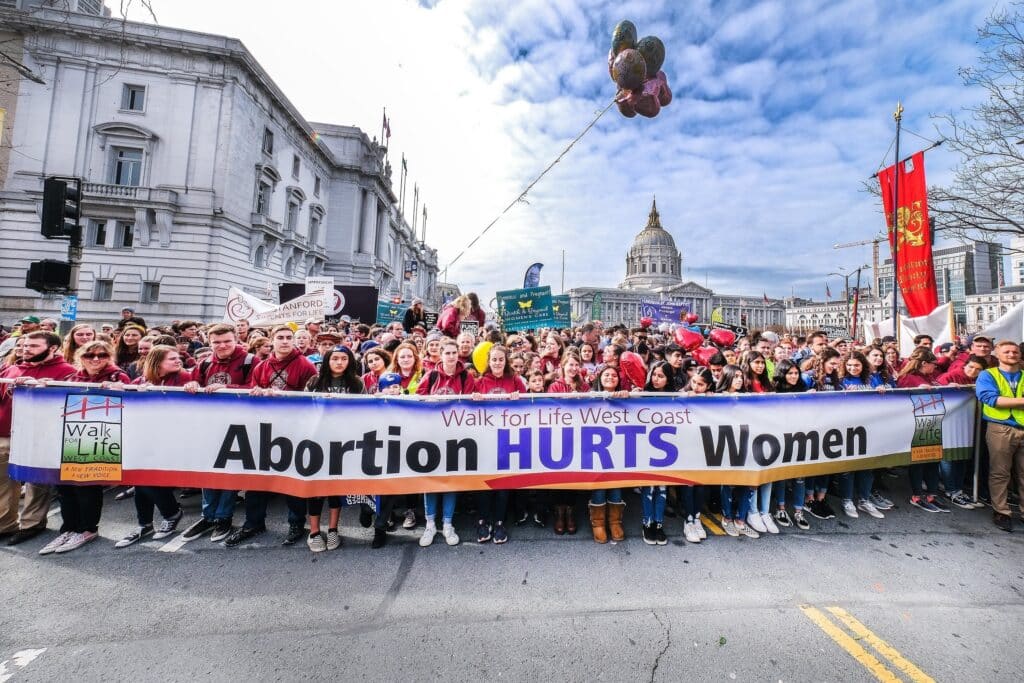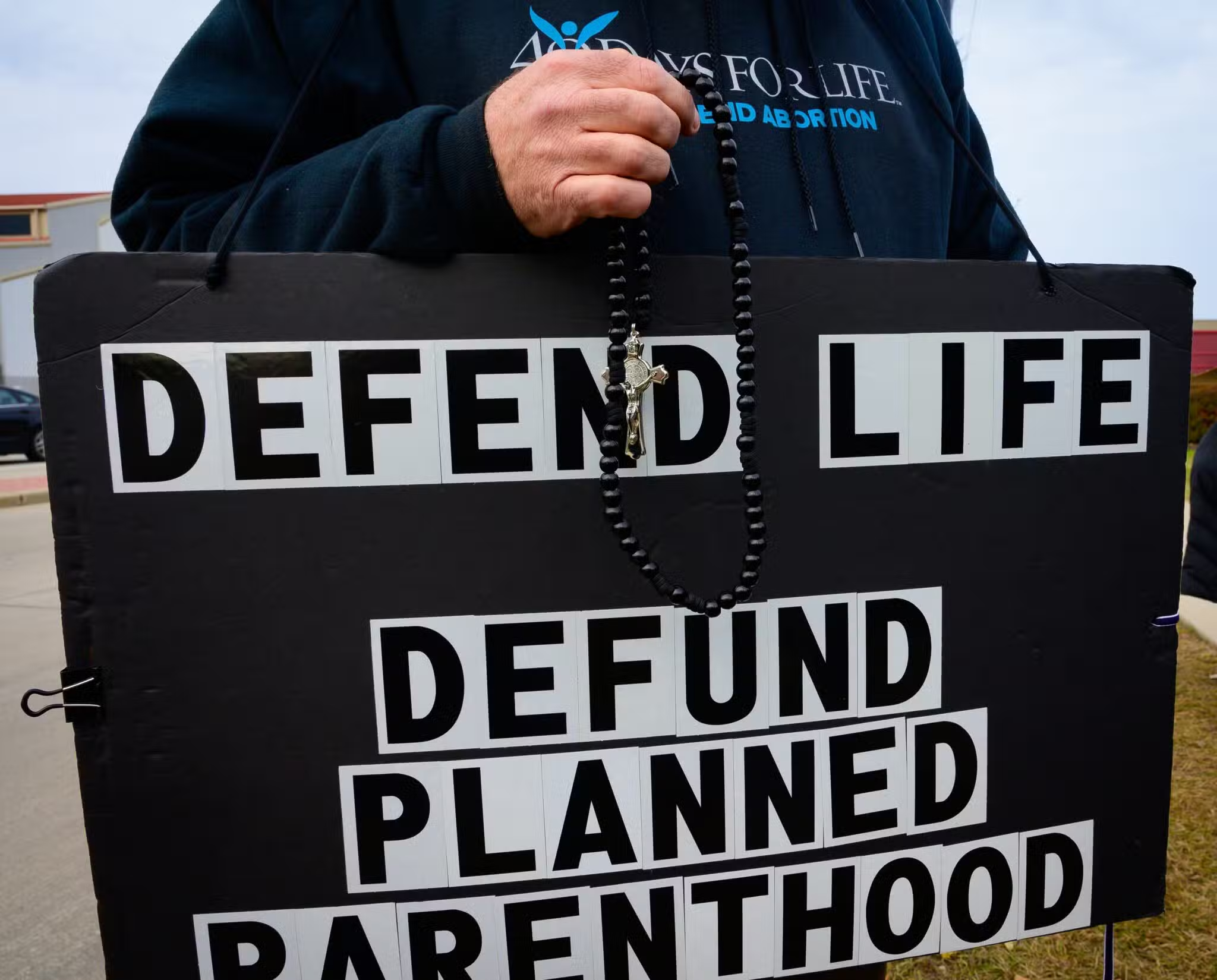From abortion to stem-cell research, the US Conference of Catholic Bishops’ pro-life committee is working hard to educate and empower Americans to save lives.
Forty-five years after the US Supreme Court’s landmark Roe v. Wade decision legalized abortion, the pro-life movement has a lot more on its plate. With capital punishment, assisted suicide, embryonic stem-cell research, reproductive technologies, and the ever-changing biomedical research field, the Catholic Church’s efforts to defend life are being met with heavily funded groups working in opposition to the Church’s goal to “protect human life from conception to natural death.”
For the US Conference of Catholic Bishops (USCCB), the Committee on Pro-Life Activities is central to the work of advocacy, public policy, education, resources, and empowerment. “The bishops seek to further the cause to approach the day when abortion, assisted suicide, euthanasia, and attacks on embryonic life would be not only a thing of the past, but would be unthinkable,” says Deirdre McQuade, the USCCB’s assistant director for pro-life communications. “Sadly, we are not putting ourselves out of business anytime too soon.”
‘Love Saves Lives’
“Choosing life is not always easy, but it is the loving, empowering, and self-sacrificial option. Love saves lives in countless ways, ” says March for Life President Jeanne Mancini, who, last October, revealed the theme for this year’s annual pro-life rally: “Love Saves Lives.”
Although the USCCB is not a sponsor of the January 19 march, it does cosponsor the National Prayer Vigil for Life at the Basilica of the National Shrine of the Immaculate Conception in Washington the night before. First held in 1979, the event includes the National Rosary for Life and a schedule of all-night prayer and adoration, leading up to the Mass of the Vigil, which draws an overflowing crowd the morning of the march.
“The pro-life movement is a beautiful, strong, and diverse community,” McQuade says. “We are praying for and advocating for an end to abortion by talking with our feet to protest the unjust state of abortion law in our country.
Abortion is legal in every state of the country through the nine months of pregnancy. People think there are more regulations and limitations on abortion, and, sadly, that is not the case. The only meaningful limitation is the Partial-Birth Abortion Ban, which went into effect in 2008.
“It’s harder these days to be pro-abortion because we now see what it involves,” she continues. “Our children’s first photos are ultrasounds.” But McQuade believes there is reason for hope. “This is a pro-life generation.”
Abortion Funding
Abortion funding is a hot-button issue, according to McQuade. “It is absolutely essential to fight the expanded funding of abortion because wherever abortion is funded, abortion numbers go up. Abortion advocates are pushing hard to get rid of the Hyde Amendment, which prohibits the use of federal taxpayers’ money to fund abortion, with the exception for the life of the mother, rape, and incest. The Hyde Amendment saves lives,” she says. Despite what abortion advocates say, McQuade points out, abortion is not part of health care for women. “Destroying life is not health care. Ending a pregnancy is not a service to women.”
What is a service, she says, is the work of the pregnancy help-center movement, which she notes has grown tremendously over the past few decades. “Having medical centers associated with them means it’s not just counseling and advice, which is a beautiful thing, but practical things to help women facing their pregnancies with real challenges: relationships, income, caring for other children. I personally find it really offensive when people say we need to underwrite abortion for the poor, as a preferential option for the poor,” McQuade says.
“We are called to stand in solidarity with those living below the poverty line and the disenfranchised. Women who are pregnant don’t need to be rendered violently un-pregnant to be empowered. They need support to be the best mothers they can be.
“To say [that] people living in poverty need abortion to be on equal standing, that is discrimination against a whole class of unborn human beings—that they don’t deserve to breathe their first breath because their parents are of a lower socioeconomic status.”
Biomedical Research
“The bishops will continue to track and monitor and fight where necessary for the defense of life in biomedical research,” McQuade says. Genetic engineering, human-animal chimeras, three-parent human embryos—years ago, these would be considered science fiction, but today this research raises serious ethical questions.
“No use of embryonic stem-cell research is justified,” she says. “The Church has been very wise and right in promoting adult stem-cell research because that’s where the cures and treatments are coming from—not embryonic.”
Assisted Suicide
“There has been such a wave of attempts to legalize assisted suicide in states across the country, but the majority have resisted, either by letting it die in session or voting it down,” McQuade explains. “Sadly, there are a small handful of states that have legalized it. The pro-assisted-suicide effort is very well funded and continues to fight in state after state after state. They are not meeting with the success that they want or might have expected. Assisted suicide advocates are pushing for physicians to prescribe a deadly cocktail of drugs for patients to commit suicide on their own, without any medical supervision or notification of family members.”

Some bills propose an expansion of who could provide the prescriptions to allow nurses or nurse practitioners to prescribe the drugs, according to McQuade. “We are concerned about this from every possible angle. Suicide is suicide,” she says. “It’s not that some people are worthy of it and others are worthy of protection from it. Every suicide is tragic.”
McQuade says there are many dangers for abuse, that this will single out and exploit or put at greater risk those in the disabled community: “The disability rights community is front and center speaking out against this. Their presence is vital to this fight.” Fears include that people deemed nonproductive, including the elderly, would be targeted for assisted suicide, and that health insurance might not cover some therapeutic care.
Respect Life Initiatives
According to its website, “The Secretariat of Pro-Life Activities, under the guidance and direction of the Committee on Pro-Life Activities, works to teach respect for all human life from conception to natural death, and organize for its protection.” New York Cardinal Timothy M. Dolan, committee chairman, said in an October 2017 statement: “Building a culture of life isn’t something we just do one month of the year, or with one event or initiative—it’s essential to who we are. It happens through our daily actions, how we treat one another, and how we live our lives.”
The website is a one-stop resource for all things “Respect Life”—in English and Spanish—including educational materials, fact sheets, a biweekly column for Catholic publications, monthly liturgical suggestions for parishes, updates on public policy efforts, and practical tips to help implement pro-life programs to reach pregnant women and their children, the disabled, the sick or dying, and those affected by abortion. One of the articles on the website is titled “What to Do When a Friend Is Considering Abortion.” The four-step approach begins with listening to the woman about her concerns, and provides practical things to say or not say.
“They are written in such a way to be accessible for folks in the pews, youth ministry, young adults, faith formation settings, and certainly the Catholic press, to draw attention to issues throughout the year,” McQuade says. “There are teachable moments that come up, and the articles are meant to be useful.”
This year, the bishops’ yearlong Respect Life program, which kicked off last October, centers on the theme “Be Not Afraid.”
“A lot of people have fear even thinking about these issues,” she says. Instead, McQuade suggests that people should feel encouraged, empowered, and equipped to do something. “Our faith gives us strength to inform ourselves and to speak out in love on these often controversial topics. People are hungry to know the truth. If we are good ambassadors and help people communicate the beauty of human life, people will join us to the benefit of many helpless people. Lives are at stake.
“We have a duty to all vulnerable people—the poor, imprisoned, elderly, unborn—but we are also called to stand with people throughout the life span,” she says. Building on the foundational right to life, fighting hunger, and advocating for good housing, clean water, and education are both social justice and pro-life issues. “Catholic social teaching can’t be put in liberal or conservative categories,” she contends. “It’s richer than that. What we have to offer is unique and important.”
McQuade says that everyone is called to build a culture of life and defend it. She suggests some practical ways: sign up with Human Life Action, which helps Catholics take action on the federal level by contacting their elected representatives; sign up to receive alerts from your state Catholic conference; participate in prayer campaigns leading up to and surrounding the March for Life; sign up for the USCCB’s e-newsletter; and check out the People of Life Facebook page.
“The bishops have long since laid the blueprint for this culture of life; many people are participating,” she says. “We still need more. We run up against budget concerns and challenges when we face well-funded groups, but there are so many stories in Scripture where the little guy wins.”
Respect Life program: usccb.org/about/pro-life-activities/respect-life-program
Sidebar: Pope Francis on Capital Punishment
The pro-life movement includes a strong stance against capital punishment, a position also supported in the Catechism (2267). Pope Francis recently reaffirmed this aspect of Catholic pro-life teaching on the 25th anniversary of the Catechism of the Catholic Church at the Vatican on October 11.
The pope said that the death penalty “heavily wounds human dignity” and is an “inhuman measure.” In his speech, he reminded the audience that the Church has only formally denounced capital punishment since 1969, when Pope Paul VI banned the death penalty in the Papal States. However, the death penalty had not actually been imposed since 1870.
Pope Francis said capital punishment “is, in itself, contrary to the Gospel, because a decision is voluntarily made to suppress a human life, which is always sacred in the eyes of the Creator and of whom, in the last analysis, only God can be the true judge and guarantor.” —Daniel Imwalle








